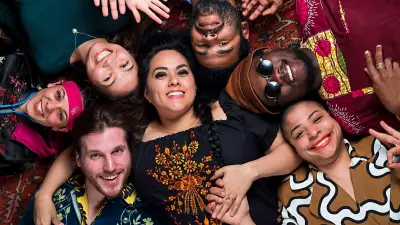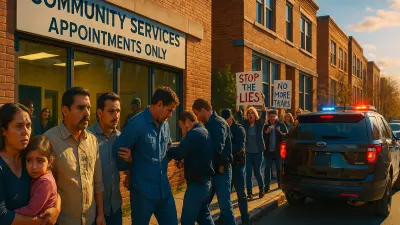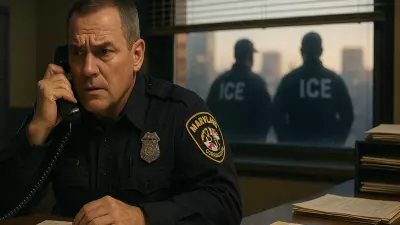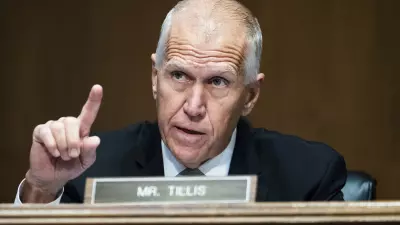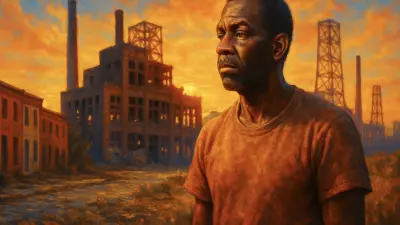The Afro Yaqui Music Collective has been described as “music without borders or boundaries; future music from the well of the past” by UCLA history professor Robin D.G. Kelley. In an interview with Postindustrial, band members Benjamin Barson, Gizelxanath Rodriguez, and Nejma Nefertiti talk about the meaning behind the band’s name and the global concerns their music represents. Afro Yaqui’s debut album, “Mirror Butterfly: the Migrant Liberation Movement Suite,” will be released on August 2 at Thunderbird Café & Music Hall in Pittsburgh’s Lawrenceville neighborhood.

What does Afro Yaqui express in terms of its intercontinental origins?
Ben: The band is meant to celebrate the collaboration and shared resistance traditions of people of African and indigenous descent in the Americas. We believe in the example of maroon communities: escaped slaves who built self-sufficient communities that sometimes included displaced Native Americans and white indentured servants who fled oppression. We also inherited a lot from our beloved, deceased friend, Fred Ho, who was a master musician and organizer. In his work, he combined music and revolutionary traditions of East Asia and the African diaspora. His band was called the Afro Asian Music Ensemble. So we have an intercontinental link between Pan-Asian, Pan-African, and pan-indigenous musical and political traditions.
Gizelxanath: I’m of Yaqui descent, indigenous people in the Sonoran desert in Mexico. It’s very important for us to include indigenous languages in our music. Just like thousands of species are dying throughout the world, indigenous languages are dying. This is very important knowledge for human survival and how to live more harmoniously with one another. All that knowledge is dying with the language, so our commitment is keeping them alive and incorporating traditions of Afrocentric diaspora — the rhythms that are still a symbol of resistance for people around the world.
Nejma: As a hip-hop artist, my background has always been working on 4/4 beats; I never worked on odd-metered beats. We can think of 4/4 as being boxed in, but Afro Yaqui has challenged me to go outside of that realm. It really spoke to revolution, so to me it’s like freedom fighter music, speaking for oppressed people and representing that legacy. Hip-hop is a voice of the revolution today.
Your music is broadly described as jazz, but with an evolution to it. Jazz also has a history of being a voice of resistance. How do the revolutionary, improvisational aspects of jazz fit together with your music?
Ben: With many things, people have replaced the product with the process when they talk about jazz. What they have in mind is a specific style, maybe from the late 1950s and ’60s, as opposed to this dynamic way of incorporating found objects, you could say. Some say jazz is European music through an African lens, but it’s much more than that. If you look at early examples of plantation societies in the Americas, there’s a lot of Creolization and cross-cultural interaction between people who didn’t speak the same languages, or even play the same scales. But they created this music that combined these different scales, rhythms, and tonalities. Jazz inherited that process, and it continues today with hip-hop, and we hope to contribute to that as well.
Gizel: We travel a lot, so it’s very important for us to make music with the community. You don’t have to be the most brilliant performer; it’s more important to make music for and with the community and to integrate everyone. Jazz allows us to do that.
Nejma: That’s why it’s a true collective. People come in and out from all over the world, and the music speaks to communities around the world.
“Rhythms are still a symbol of resistance for people around the world.”
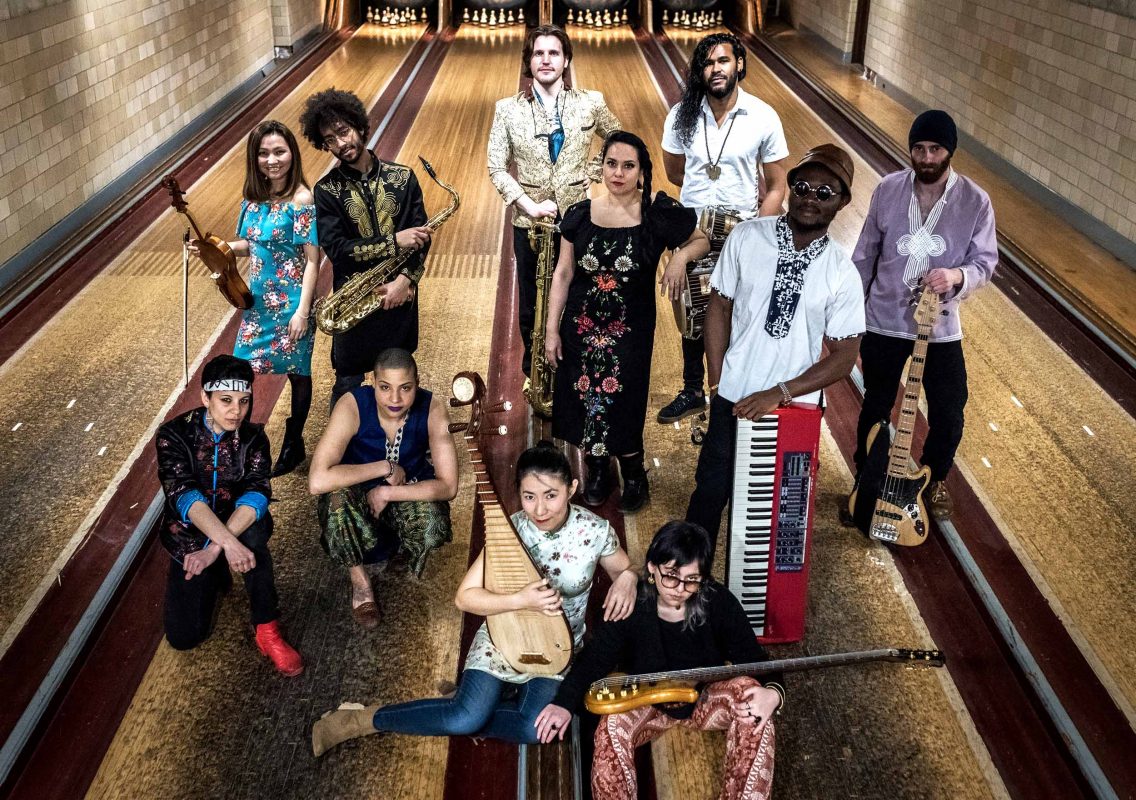
How and when did Afro Yaqui form? Does it have an origin story?
Gizel: In 2016. It’s a new formation here in Pittsburgh. We met Nejma in 2017.
Ben: We had some songs we wanted to adapt for a jazz band with these kinds of principles and political histories in mind. We also wanted to do some of the music of Fred Ho. And then we met Nejma and she was a great fit as the emcee of the band.
Is Pittsburgh home for Afro Yaqui?
Ben: Yes, of course. Pittsburgh is an amazing city connected to struggle around land and labor. It is important to keep a global horizon because our struggles are connected, and because living in America, the heart of empire, produces a forced ignorance and disinterest in the countries the United States politically and economically dominates. We have to break through that, to ourselves and our audience, and learn about the political and cultural strategies abroad that are advancing the struggle for liberation. For this reason, we’ve collaborated with artists in Tanzania, Cuba, and Iraq around human rights, ecosocialist causes, the rights of water, and the beauty of music and culture of marginalized peoples.
Most of the band lives in Pittsburgh, many of them since childhood, but includes musicians born in Cuba, Ghana, China, Kazakhstan, and Mexico. Pittsburgh has more internal diversity and transnational connections than is commonly represented in the public imagination.
A lot of your work is about the migration of indigenous people. In Pittsburgh, we’re seeing a lot of displacement resulting from rising real estate values, which creates a different kind of migration. Can you talk about how these are related?
Ben: There are global connections between gentrification, privatization, biotechnology, and the logic of capitalism. It’s impossible to fight one phenomenon without fighting the other. Public housing, public education, communally controlled land, native seeds, and indigenous and region-specific farming practices have all been infiltrated by capital. Our work is about migration caused by capitalist dislocations. Indigenous peoples the world over have special insights into ecosystem-based production, which makes their continued defense of nature historic as we try to model a new society after capitalism.
Your music is broadly described as jazz, but with an evolution to it. Jazz also has a history of being a voice of resistance. How do the revolutionary, improvisational aspects of jazz fit together with your music?
Ben: With many things, people have replaced the product with the process when they talk about jazz. What they have in mind is a specific style, maybe from the late 1950s and ’60s, as opposed to this dynamic way of incorporating found objects, you could say. Some say jazz is European music through an African lens, but it’s much more than that. If you look at early examples of plantation societies in the Americas, there’s a lot of Creolization and cross-cultural interaction between people who didn’t speak the same languages, or even play the same scales. But they created this music that combined these different scales, rhythms, and tonalities. Jazz inherited that process, and it continues today with hip-hop, and we hope to contribute to that as well.
Gizel: We travel a lot, so it’s very important for us to make music with the community. You don’t have to be the most brilliant performer; it’s more important to make music for and with the community and to integrate everyone. Jazz allows us to do that.
Nejma: That’s why it’s a true collective. People come in and out from all over the world, and the music speaks to communities around the world.
“You don’t have to be the most brilliant performer; it’s more important to make music for and with the community and to integrate everyone.”
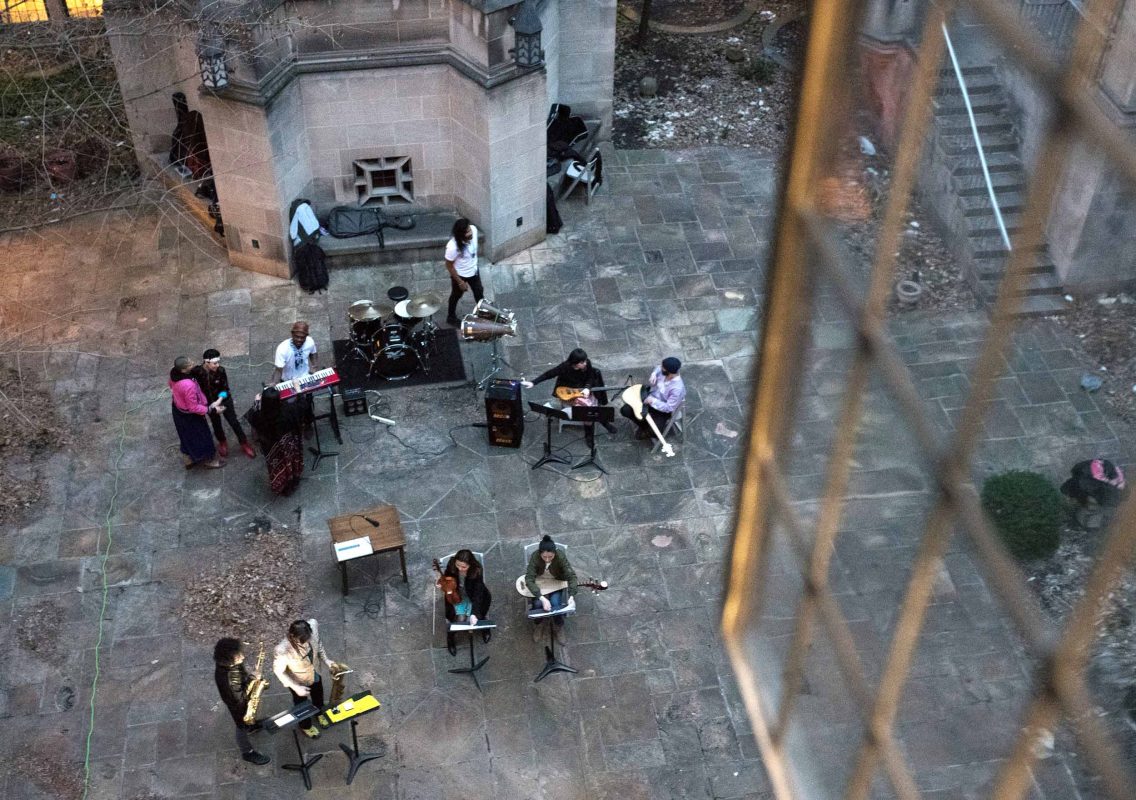
We’re reaching crisis levels of displacement in American cities. Because Pittsburgh’s neighborhoods have remained rather segregated, this impacts predominantly black communities. How do you think about your music in terms of black Pittsburgh being on the receiving end of upheaval and displacement?
Ben: There’s an interconnected set of issues. It’s displacement, it’s police brutality, it’s racism, which is animating all of this. Where we connect most is with food sovereignty and food deserts in places like Homewood. When we moved here in 2014, we helped organize a community gardening conference as part of the eco-socialist horizons in Homewood. Since then, we’ve been active in a lot of majority-black community gardening organizations. We work with Mama Africa’s Green Scouts and the Black Urban Gardeners of Pittsburgh and performed at events for those organizations. For us, having a connection to the land is an important way to fight the most colonialist aspects of gentrification and anti-black violence. That’s where we really try to make a connection.
Gizel: Capitalism has for centuries taken over indigenous land. These patterns have repeated through centuries, and we’re seeing it happen more and more in cities now. The same systems of oppression that have been going on for such a long time. It’s becoming more evident now, and they can’t hide from it. Because it’s so present and visible, it’s easier to address.
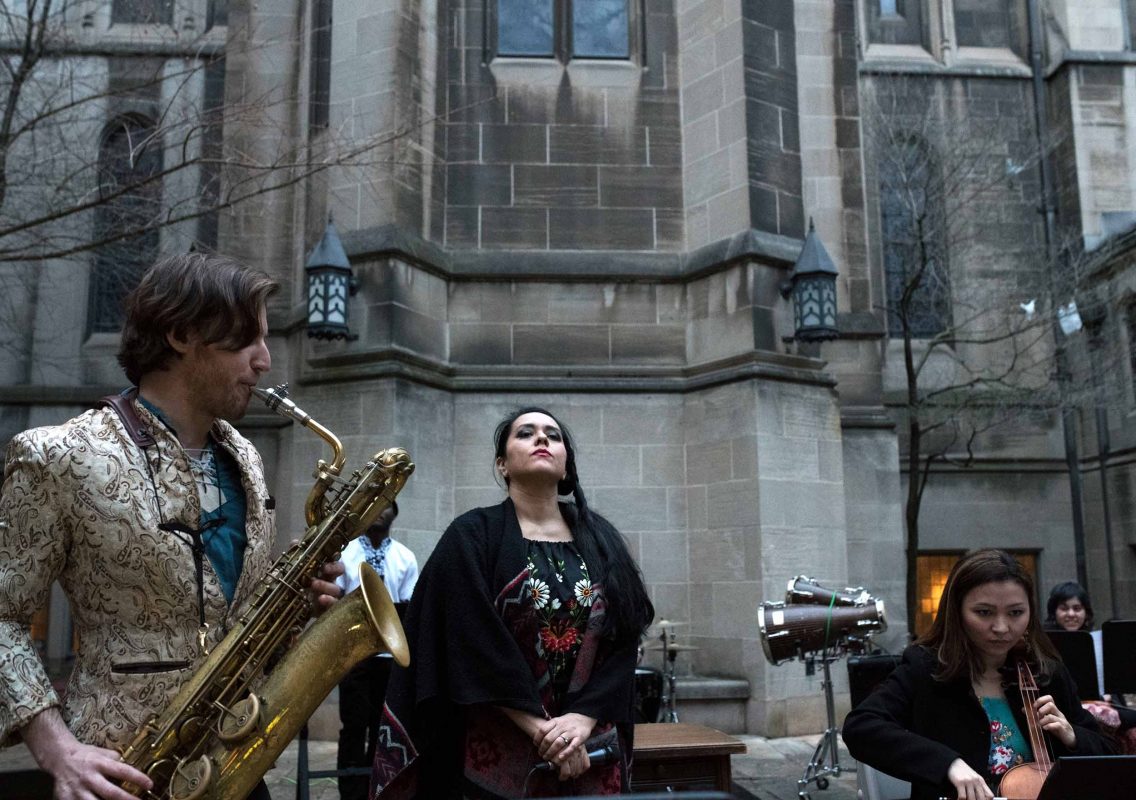
Does the hip-hop aspect of your music make it more relatable in Pittsburgh, where we don’t have big immigrant communities?
Nejma: I’m not from Pittsburgh, but hip-hop was resurrected in New York, and it was always talking to the struggle. It was always speaking to the struggle from the streets. It’s a little bit different than it is now. It’s really commercial. There’s still that hip-hop out there; you just need to know where to find it. But hip-hop has always been a voice of the streets, where the streets were breathing and came alive. People use hip-hop to lift the spirit again and tell their struggle. Black people started it and resurrected it, and always have created it. It’s an ancient culture that comes from times of slavery. It just changes form along the way. Even in its commercial form right now, people still speak to really important issues. Hip-hop has always been a voice for the people, for oppressed people, for poor people, for black people, for everyone. It’s really welcomed everyone, too. Hip-hop helps everybody relate now because it’s so global.
“The music speaks to communities around the world.”
What guidance do you have for artists or anyone trying to find creative ways of expressing their beliefs, especially those just starting out who are trying to take complicated ideas and put them in some other form?
Gizel: No matter what you do, whether you’re an architect or engineer, or whatever you choose to be, you have to realize the earth is really struggling, and our decision-making and our designs and the way we live and create things, they have to harmonize with nature. It’s not sustainable what we’re doing. We have to look at the earth as a single, breathing organism, not as a thing we can just build on and destruct.
Nejma: If the earth suffers, everyone on it suffers. I’d say to artists: What is your purpose? Find it and walk in it, but how can you give to this world? To me, it’s a duty and responsibility, and we as artists need to tap into our politics and other people’s oppression, because it’s still ours. It’s not like if something’s happening over here, it’s not affecting us. People don’t realize sometimes that things happening to someone else affects all of us. You can’t just discredit that because it’s not in your world.
Ben: For a practical tip, I don’t think upcoming artists should be focused on being successful. If you’re successful, it’s because you’re expressing a real social need for a lot of communities. Oppression, displacement, and environmental destruction are only increasing, and if you can find ways to harmonize with a message that compels and uplifts people to be connected to a larger movement and a greater good, that will make you successful.
Nejma: How do you bring awareness and inspire people? How do you change the world even on a small scale? Everything counts because everyone has a part.
Ben: We’re trying to be organizers through music,and we’re not just trying to entertain, or put on the ideal of what this song should sound like. It’s about activating people through song, poetry, performance art, and trying to connect communities with a new sense of purpose.
Nejma: Or trying to connect communities from around the world that are trying to be autonomous or self-sufficient, because they might not know about each other.

